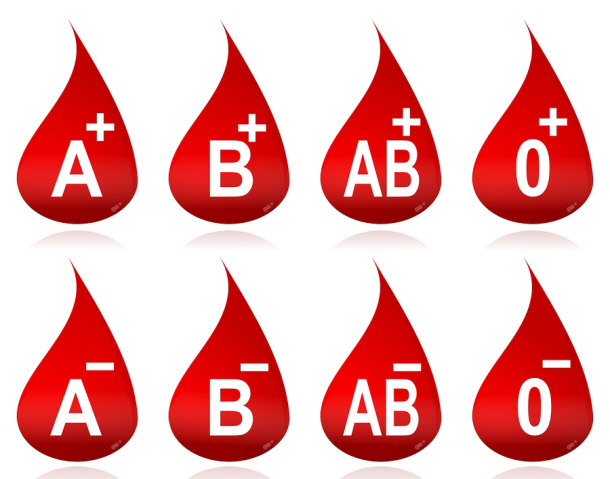More blood needed in
preparation for natural disasters
A person who gets into a car accident may require up to 100 pints of blood to
stay alive. According to the American Red Cross, only one pint of blood can be
donated by a person during transfusion, highlighting the potential imbalance
between the need and availability of blood in times of public crises.
“We’re no stranger to earthquakes,” said Carmie de Leon, vice president for
sales and marketing of Healthway Medical. “The recent earthquake in Nepal
curtailed the lives of more than 8,000 people, and required them to seek more
blood to treat those who are terribly wounded.”
She added, “The same episode may happen to the Philippines given that there’s a rising fear of the 7.6-magnitude strong earthquake.”
Metro Manila is prone to earthquakes since it is surrounded by active faults—the West Valley and East Valley Faults. According to the Philippine Volcanology and Seismology (PHIVOLCS), residents in Metro Manila and nearby provinces should prepare for the “mega earthquake” which could put the lives of thousands of people on the line.
“We need to be prepared,” De Leon said. “While keeping a disaster preparedness kit with rechargeable flash lights, face towels, whistles, and other disaster must-haves will make us ready, there’s also a need to bank blood to prepare for the worst.”
She added, “Blood donation will only take up 45 minutes of a person’s time, but the outcome transcends a lifetime.”
One donor could actually help save the lives of three people who need to receive blood transfusion, according to the American Red Cross. But de Leon said that “before Filipinos start rolling up their sleeves to prepare for blood donation, they must first understand what the process means, what it is for, and how it will also benefit them in the long run.”
Blood transfusion is an indispensable component of healthcare where the donor’s blood is added to the recipient’s own blood. During the process, certain parts of the blood are delivered through an intravenous (IV) line that’s connected to one of the veins in the arm.
While blood donation has been considered as an important pillar in saving millions of lives around the world during natural disasters—especially during earthquakes—de Leon said that not everyone can freely submit themselves to healthcare institutions to donate blood.
“Despite that voluntary blood donation is being pushed forward by concerned medical providers, different factors need to be considered first,” de Leon said. “Filipinos should take a personal assessment of themselves, putting into consideration their age, weight, and health conditions.”
A person’s age and weight is generally considered prior to being allowed to donate blood. Other factors include considerations regarding factors such as body temperature, history of hepatitis, diabetes, cardiovascular disease, asthma, low and high blood pressure, and other blood related conditons.
The next step is to identify the donor’s blood type. Your blood will be tested to determine your blood type—A, B, AB or O—and your Rh factor. The Rh factor is identified by the presence (Rh positive) or absence (Rh negative) of a specific antigen in the blood. De Leon added, “In any emergency, people with type O negative red blood cells may transfer their blood to anyone especially during life-threatening situations.

If you want to start donating blood, Healthway Medical—the most trusted and preferred mall-based clinic in the Philippines—offers laboratory blood tests to adults to help them identify if they are eligible for transfusion.
“Specific examinations are needed to ensure that the blood being donated is safe,” de Leon said. “While these donors give a part of themselves to save lives, they, in return, also reap optimum health benefits.”
Donating blood is known for preserving cardiovascular health by reducing blood viscosity which eliminates the iron that possibly oxidizes in your blood, and minimizes the risk of acquiring cancer.
“The best way to guarantee that you are eligible to undergo blood transfusion is to keep a close watch of your health,” de Leon said. “This is why having enough sleep, eating right, exercising, and de-stressing (S.E.E.D.) is important. If you aim to give others the benefit to have a better quality of life, you also have to ensure your health round-the-clock.”
De Leon concluded, “When natural disasters take form in the Philippines, we’ve got no one else to hold on to but each other. While we still have time, we need to bank more safe blood from volunteers who have a strong commitment to save lives. And that person is you.”
If you want to donate blood, e-mail Red Cross Philippines at prc@redcross.org.ph or call (02) 790-2329.
To check your blood type in preparation for your transfusion,
visit
Healthway Medical clinics at:
Alabang Town Center
Shangri-la Plaza
Market! Market!
Festival Mall
Healthway Manila
SM The Block
Greenbelt 5
For more details, please
For more details, please
contact (02) 751-4929
visit www.healthway.com.ph.
Sources:
World Health Organization
American Red Cross
Mayo Clinic
Harvard Health Publications
Oxford Journals
Sources:
World Health Organization
American Red Cross
Mayo Clinic
Harvard Health Publications
Oxford Journals
Follow Me:
Instagram: insta_adae
Twitter: @AdaeEtc
Facebook: https://www.facebook.com/adae2remember
https://plus.google.com/+AdaeAng/about
https://plus.google.com/+AdaeAng/about


.jpg)
No comments:
Post a Comment